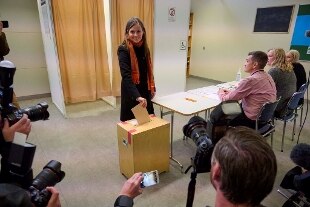W20 Women of Rome, gender equality for the first time at the G20
Draghi: companies and governments do more on gender equality
Share
September 26, 2021 For the first time in Europe, women hold more than half of the seats in Iceland's new parliament, according to final election results. Of the 63 seats at the Althing, 33 were won by women, or 52%, according to projections based on the final results. No other European country has ever had more than 50% female parliamentarians, with Sweden coming closest but stopping at 47%, according to World Bank data.
Five other countries in the world currently have parliaments in which women hold at least half of the seats, according to the Interparliamentary Union: Rwanda with 61% women, Cuba with 53%, Nicaragua 51% and Mexico and the United Arab Emirates both with 50%.
Unlike other countries, Iceland has no legal quotas on women's representation in parliament, although some parties require a minimum number of candidates to be women. Iceland has long been a pioneer in gender equality and women's rights, and has topped the World Economic Forum's most egalitarian countries for the past 12 years. It offers the same parental leave to men and women, and its first law on equal pay for men and women dates back to 1961.
Iceland was the first country to elect a woman as president in 1980, and since 2018 has a pioneering equal pay law that requires employers to prove that they are paying equal wages to men and women.
Saturday's elections saw the left-right coalition government expand its majority.
However, Prime Minister Katrin Jakobsdottir's Left Green Movement has emerged weakened, while his right-wing coalition partners have achieved strong results, questioning his future as prime minister.

